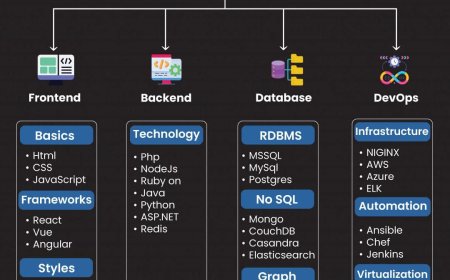How to plan a corporate retreat in Omaha
How to Plan a Corporate Retreat in Omaha Planning a corporate retreat is more than just booking a hotel and scheduling a few team-building games. It’s a strategic investment in employee engagement, leadership alignment, and organizational culture. When done right, a corporate retreat can reignite motivation, foster deeper collaboration, and clarify long-term goals—all while giving teams a much-nee
How to Plan a Corporate Retreat in Omaha
Planning a corporate retreat is more than just booking a hotel and scheduling a few team-building games. Its a strategic investment in employee engagement, leadership alignment, and organizational culture. When done right, a corporate retreat can reignite motivation, foster deeper collaboration, and clarify long-term goalsall while giving teams a much-needed break from the daily grind. Omaha, Nebraska, may not be the first city that comes to mind for corporate events, but its unique blend of Midwestern hospitality, affordable venues, accessible transportation, and rich cultural offerings make it an ideal, under-the-radar destination for companies seeking a meaningful and memorable retreat experience.
This guide provides a comprehensive, step-by-step roadmap to planning a successful corporate retreat in Omaha. Whether youre organizing your first retreat or refining your approach for the fifth, this resource will help you navigate logistics, select the perfect location, design impactful programming, and ensure every detail contributes to your teams growth and cohesion. By the end, youll have a clear, actionable plan tailored to Omahas strengthsand the confidence to execute it with precision.
Step-by-Step Guide
Define Your Retreat Objectives
Before you even think about venues or dates, ask yourself: Why are we holding this retreat? Objectives shape every decisionfrom the agenda to the location. Common goals include:
- Strengthening team cohesion after remote work or restructuring
- Strategic planning for the upcoming fiscal year
- Recognizing achievements and boosting morale
- Integrating new hires into company culture
- Encouraging cross-departmental collaboration
Write down 23 primary objectives and prioritize them. For example, if your main goal is strategic planning, your agenda should be dominated by facilitated workshops and breakout sessions. If its team bonding, focus on experiential activities and informal social time. Avoid trying to do everythingclarity leads to impact.
Determine Your Budget
Corporate retreats can range from $150 to $800 per person per day, depending on location, duration, and inclusions. Omaha offers exceptional value compared to coastal cities. Start by identifying your total budget and allocate it across key categories:
- Accommodations: 3545% of budget
- Food & Beverage: 2025%
- Venue & Equipment: 1015%
- Activities & Transportation: 1015%
- Contingency: 510%
Use a spreadsheet to track projected vs. actual spending. Consider negotiating group rates with hotels and caterers. Omahas competitive market means many venues are eager to secure corporate bookingsdont hesitate to ask for discounts on room blocks, complimentary meeting space, or waived service fees.
Choose the Right Dates and Duration
Timing is critical. Avoid major holidays, tax season (for finance teams), or periods when key stakeholders are traveling. Spring (AprilMay) and fall (SeptemberOctober) offer mild weather and fewer tourist crowds in Omaha. Summer can be hot and humid, while winter brings snow and potential travel disruptions.
Most corporate retreats last 24 days. A two-day retreat is ideal for focused strategy sessions with light team-building. Three days allows for deeper workshops, evening socials, and local excursions. Four days is best for leadership teams or when you want to include family members (a family-friendly retreat).
Book dates at least 46 months in advance. Popular venues in Omaha, such as the Joslyn Art Museums event spaces or the Omaha Marriott Downtown, fill quickly during peak seasons.
Select the Perfect Venue
Omaha offers diverse venue options suited to different retreat styles:
- Urban Luxury: Omaha Marriott Downtown, The Farnam Hotel, or The Creighton University Conference Center. Ideal for tech companies or finance teams who want modern amenities, high-speed Wi-Fi, and proximity to downtown dining.
- Rustic Retreat: The Lodge at Champions Retreat (just outside Omaha) or the Omaha Country Club. Perfect for teams seeking tranquility, nature, and expansive meeting rooms.
- Unique & Inspiring: Joslyn Art Museum, Durham Museum, or the Henry Doorly Zoos event spaces. These venues offer unforgettable backdrops for keynote speeches or team dinners.
- Hybrid: Many venues offer both indoor meeting spaces and outdoor areas. The Omaha Eppley Airfields Conference Center, for example, includes a rooftop terrace with city views.
When evaluating venues, ask:
- Is there enough space for breakout sessions and large group gatherings?
- Are AV equipment, projectors, and whiteboards included or available for rent?
- Is there reliable, high-speed internet throughout the facility?
- Can the venue accommodate dietary restrictions (vegan, gluten-free, allergies)?
- Is there on-site parking or valet? Is public transit accessible?
Visit the venue in person if possible. If not, request a virtual tour and ask for floor plans. Confirm the capacity of each room and ensure the layout supports your agenda.
Plan the Agenda with Purpose
A well-structured agenda balances structure and flexibility. Avoid back-to-back meetings. Include breaks, meals, and downtime. A sample 3-day agenda:
- Day 1 Arrival & Connection
- Afternoon check-in & welcome reception
- Icebreaker activity (e.g., Two Truths and a Lie with a company twist)
- Welcome dinner with keynote from CEO
- Day 2 Strategy & Collaboration
- Morning: Vision and goal-setting workshop (facilitated)
- Midday: Breakout sessions by department
- Afternoon: Cross-functional problem-solving challenge
- Evening: Group activity (e.g., riverfront bike ride or brewery tour)
- Day 3 Reflection & Departure
- Morning: Action plan review and accountability commitments
- Midday: Gratitude circle or appreciation wall activity
- Afternoon: Check-out and optional local tour (e.g., Old Market)
Use a mix of facilitation styles: silent reflection, small group discussions, open forums, and gamified learning. Assign a skilled facilitator if internal leadership isnt experienced in guiding group dynamics.
Arrange Transportation and Logistics
Omahas airport (Eppley Airfield) is well-connected with major airlines. Arrange group shuttles from the airport to the venue, especially if your team is arriving at different times. Many hotels offer complimentary shuttle servicesconfirm this before booking.
If you plan off-site activities (e.g., a tour of the Union Pacific Railroad Museum or a visit to the Durham Museum), book private vans or charter buses. Omahas public transit (Metro) is limited, so relying on it is not recommended for group logistics.
For teams arriving from out of town, create a simple digital guide with:
- Hotel check-in instructions
- Local weather expectations
- Recommended restaurants near the venue
- Emergency contacts and local pharmacy/hospital locations
Use a free tool like Canva or Google Sites to build this guide and share it via email one week before departure.
Coordinate Catering and Dietary Needs
Food plays a vital role in retreat success. People remember how they felt during meals as much as what was discussed in meetings. Omaha has a thriving food scene with farm-to-table restaurants, craft breweries, and diverse cuisines.
Work with your venues catering team or hire a local vendor like The Keg or B. Smiths Catering. Offer:
- Breakfast: Buffet with hot and cold options
- Lunch: Build-your-own bowls, sandwiches, salads
- Dinner: Plated or family-style meals with vegetarian, vegan, and gluten-free options
- Snacks: Fresh fruit, nuts, energy bars available throughout the day
- Drinks: Coffee, tea, sparkling water, and limited alcohol (if appropriate)
Send a dietary survey to all attendees two weeks before the retreat. Include options for allergies, religious restrictions, and personal preferences. Label all food clearly.
Incorporate Local Culture and Experiences
Omahas charm lies in its authenticity. Leverage local culture to make your retreat unforgettable:
- Old Market District: A historic district with cobblestone streets, boutique shops, and artisanal eateries. Perfect for evening strolls or group dinners.
- Henry Doorly Zoo and Aquarium: One of the top zoos in the world. Offer a guided group tour as a team-building activity.
- Union Pacific Railroad Museum: Celebrate Omahas railroad heritage with a curated tour.
- Local Craft Breweries: Visit Good Life Brewing, Zipline Brewing, or Big Muddy Brewing for a casual tasting.
- Omaha Symphony or Omaha Theater Company: Book tickets for a performance as a cultural evening.
These experiences arent just funthey reinforce the idea that your company values more than productivity. They build shared memories and stories that last long after the retreat ends.
Collect Feedback and Follow Up
A retreats impact fades without follow-through. Send a post-retreat survey within 48 hours while experiences are fresh. Use tools like Google Forms or SurveyMonkey with questions like:
- What was the most valuable part of the retreat?
- What could be improved next time?
- Do you feel more connected to your team?
- What one action will you take based on what you learned?
Share a summary of the feedback with the team and outline how youll act on it. For example: Based on your input, well implement monthly cross-departmental coffee chats to continue the collaboration we started here.
Within 30 days, host a brief retreat recap meeting to review action items, celebrate wins, and reaffirm commitments. This transforms inspiration into accountability.
Best Practices
Lead with Inclusivity
Ensure your retreat design accommodates introverts, extroverts, remote workers, and employees with different physical abilities. Avoid mandatory social events. Offer quiet spaces for reflection. Use anonymous feedback tools. Consider providing stipends for employees who need childcare or pet-sitting during the retreat.
Balance Work and Play
Dont turn the retreat into an extended workweek. Schedule at least one full afternoon or evening free of agenda items. Let people recharge. A relaxed team is a more creative and productive team.
Assign Roles Clearly
Dont rely on one person to manage everything. Create a small planning committee with assigned roles:
- Logistics Coordinator: Handles bookings, transportation, supplies
- Agenda Designer: Crafts the program and secures facilitators
- Communication Lead: Manages pre-retreat emails and post-retreat follow-up
- Finance Tracker: Monitors budget and expenses
Use shared tools like Trello or Asana to keep everyone aligned.
Invest in Professional Facilitation
If your retreat involves strategic planning, conflict resolution, or leadership development, hire an external facilitator. They bring neutrality, structure, and expertise that internal managers often lack. Look for local Omaha-based consultants through the Nebraska Association of Business and Industry or LinkedIn networks.
Document and Share the Experience
Assign someone to take high-quality photos (with consent) and capture quotes from participants. Create a digital scrapbook or short video to share after the retreat. This reinforces the value of the experience and builds anticipation for future events.
Align with Company Values
Every aspect of the retreatfrom the venue choice to the meals servedshould reflect your companys culture. If sustainability is a core value, choose a venue with green certifications and use reusable tableware. If innovation is key, host a design-thinking workshop. Consistency builds trust.
Set Clear Expectations Upfront
Communicate the retreats purpose, schedule, dress code, and participation expectations well in advance. Avoid surprises. For example: This is a work retreat focused on strategy. While well have fun, we ask that you come prepared to contribute to discussions.
Tools and Resources
Planning and Organization Tools
- Asana or Trello: For task management and team collaboration
- Google Workspace: Shared calendars, documents, and forms for surveys and agendas
- Microsoft Teams or Slack: For pre-retreat communication and group updates
- Airtable: To build a master retreat tracker with budget, vendor contacts, and timelines
Venue and Vendor Resources
- Omaha Convention & Visitors Bureau (OCVB): Offers free planning support, venue recommendations, and local partner discounts. Visit omahatourism.com
- Meet Omaha: A comprehensive directory of meeting spaces, hotels, and event planners in the area
- Eventbrite: For registering attendees and collecting payments
- Yelp and Google Reviews: Research local caterers, transportation providers, and activity vendors
Agenda and Facilitation Tools
- Miro: Digital whiteboard for virtual or in-person brainstorming
- Mentimeter: Live polling and Q&A tools to engage participants
- Retreat Kit by Atlassian: Free downloadable templates for retreat agendas and team surveys
- Book of Meetings by Patrick Lencioni: A guide to structuring productive team meetings
Local Omaha Resources
- Omaha Symphony: Group ticket discounts available
- Durham Museum: Offers corporate group tours and event rentals
- Heartland of America Park: Free public space with walking trails and picnic areas
- Nebraska State Historical Society: Offers guided tours of local history
- Local Food Co-ops: For organic, locally sourced catering options
Real Examples
Case Study 1: Tech Startup Retreat at The Farnam Hotel
A 45-person SaaS company based in Chicago planned a 3-day retreat in Omaha to realign around their new product roadmap. They chose The Farnam Hotel for its modern meeting rooms and downtown location.
They hired a local facilitator to lead a Future of Our Product workshop using Miro boards. Afternoons were reserved for team bike rides along the Missouri River. Dinner was hosted at The Keg, featuring locally sourced Nebraska beef.
Post-retreat survey results showed a 42% increase in team alignment scores. Two months later, the product launch timeline was accelerated by three weeks due to improved cross-functional communication. The company has since made Omaha its annual retreat destination.
Case Study 2: Nonprofit Leadership Retreat at Joslyn Art Museum
A statewide nonprofit with 12 regional offices held a retreat to strengthen leadership cohesion. They selected the Joslyn Art Museum for its inspiring architecture and quiet ambiance.
The agenda included silent reflection in the museums gardens, followed by facilitated conversations about organizational values. Participants created a Values Canvas using art suppliesa creative way to visualize their mission.
One leader later said, I hadnt felt truly heard in years. This retreat changed how I lead. The organization saw a 30% reduction in leadership turnover the following year.
Case Study 3: Manufacturing Team Retreat at The Lodge at Champions Retreat
A manufacturing firm with 200 employees hosted a 2-day retreat for their frontline supervisors and managers. They chose a rustic lodge outside Omaha to create a sense of escape from the factory floor.
Activities included a ropes course, a Lean Operations scavenger hunt around the property, and a campfire session where leaders shared personal stories of resilience.
Within six months, safety incident reports dropped by 27%, and employee engagement scores rose significantly. The company credited the retreat for rebuilding trust between management and operations teams.
FAQs
Is Omaha a good city for corporate retreats?
Absolutely. Omaha offers affordable accommodations, excellent venues, minimal travel hassles, and a welcoming atmosphere. Its less crowded than major coastal cities, which means better service and lower prices. Plus, its central location makes it accessible to teams from the Midwest and beyond.
How far in advance should I book a corporate retreat in Omaha?
At least 46 months ahead for peak seasons (spring and fall). For popular venues like the Joslyn Art Museum or Omaha Marriott Downtown, booking 8 months in advance is recommended.
Can I include family members in the retreat?
Yes, many venues in Omaha offer family-friendly packages. The Lodge at Champions Retreat and the Omaha Country Club have activities for children and spouses. Be sure to communicate this option early and provide separate programming for families.
Whats the best time of year to hold a retreat in Omaha?
April to May and September to October are ideal. Temperatures are mild, and the city is vibrant without being overwhelmed by tourists. Avoid July and August due to heat and humidity, and December through February due to snow and ice.
Do I need to hire a professional facilitator?
If your retreat involves sensitive topics like strategy, culture change, or conflict resolution, yes. A skilled facilitator ensures productive dialogue and prevents dominant voices from overshadowing others. Even for smaller teams, a facilitator adds structure and objectivity.
What are some low-cost team-building activities in Omaha?
Many free or low-cost options exist: walking tours of the Old Market, visiting the free exhibits at the Durham Museum, picnicking at Heartland of America Park, or a group bike ride along the Missouri River Trail. Local breweries often offer free tastings for groups.
How do I handle dietary restrictions?
Always send a survey before the retreat. Work with your caterer to label all food clearly and provide separate options. Omaha has many chefs experienced in accommodating allergies and special dietsdont assume its a challenge.
Can I use the retreat for recruitment or onboarding?
Yes. Many companies invite new hires to join the retreat as a powerful onboarding tool. It helps them form bonds quickly and understand company culture in a meaningful way. Include them in team activities and assign a buddy to help them integrate.
Conclusion
Planning a corporate retreat in Omaha isnt about escaping workits about elevating it. By thoughtfully selecting a venue that reflects your values, designing an agenda that sparks real connection, and embedding local experiences into the fabric of your event, you transform a simple getaway into a catalyst for lasting change.
Omahas blend of affordability, accessibility, and authentic Midwestern charm makes it an exceptional choice for companies ready to invest in their people. Whether youre a startup building culture from the ground up or an established organization seeking renewal, this city offers the space, the support, and the inspiration to make your retreat unforgettable.
Use this guide as your blueprint. Start with clarity of purpose, execute with attention to detail, and follow up with intention. The return on investment wont just show up in engagement scores or productivity metricsitll show up in the conversations your team has years later: Remember that retreat in Omaha? Thats when everything changed.



















